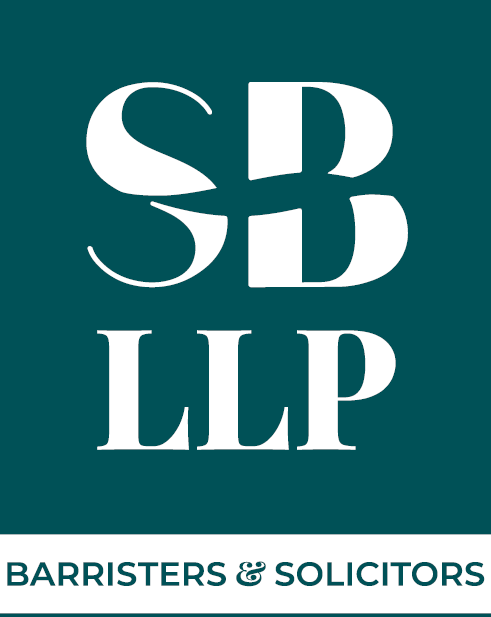Financial Disclosure in Family Law
Written by: Grace Snider, Student-at-Law
Introduction
When a married couple or adult interdependent partners decide to split up, there are several steps they must take before they can be officially divorced or separated. One of these required steps is called financial disclosure.
What is financial disclosure?
Financial disclosure is a process where each party must provide their spouse or partner with detailed information regarding their income, assets, and debts. Sometimes this disclosure will include the parties’ monthly budget of expenses and/or special or extraordinary expenses for the parties’ children.
What needs to be disclosed?
Tax Information
- General T1 Tax returns from the 3 most recent taxation years
If not filed, copies of all T4, T4A and other relevant tax slips and statements.
- Notices of assessment and/or notices of reassessment from the three most recent tax years
Employment Information
- If employed, your 3 most recent paystubs indicating the total earnings paid to you in the year to date, including overtime.
- If self-employed, and carrying on an unincorporated business (not a partnership or corporation):
for the 3 most recent taxation years,
the financial statements of your business or professional practice and
a detailed list of all salaries, wages, management fees, or benefits paid to people or companies that you don’t deal with at arm’s length.
Copies or details of all cheques issued to you in the past six weeks from any business you are involved with or have provided services to.
- If unemployed, provide the date when you were last employed
Legal Partnership Information
- Confirmation of your income and draw from, and capital in, the partnership for each of
the 3 most recent taxation years
Corporate Interests Information – if you have an interest of 1% or more in a privately held corporation
- Copies of the following documents for each of the 3 most recent taxation years
the financial statements of the corporation and its subsidiaries, and
a breakdown of all payments or benefits made to people or companies closely connected to the corporation or its related corporations.
Beneficiary under trust Information
- Copies of the trust settlement agreement, and the trust’s 3 most recent financial statements.
Student Information
- A statement indicating the total amount of student funding received during the current academic year, including loans, grants, bursaries, scholarships and living allowances.
Other Income Information
- Copies of documents that indicate the total amount of income you received from that source during the current year, if you earn income from:
Employment Insurance
Social assistance (such as Income Support)
Pension benefits
Workers’ compensation
Disability payments
Other source(s)
If you are requesting contribution to the children’s special or extraordinary expenses
- A detailed list of the expenses as well as copies of receipts or other documents showing the amounts of the following:
childcare expenses
the children’s medical and dental insurance premiums
health-related expenses that exceed insurance reimbursement by at least $100 annually
extraordinary expenses for primary or secondary school education
expenses for post-secondary education
extraordinary expenses for extracurricular activities.
If spousal support, adult interdependent partner support or family property is an issue
You must disclose:
- Copies of all statements and cancelled cheques for all bank accounts in your name, including joint accounts, from the 6 most recent months;
- Copies of credit card statements for all credit cards in your name, including joint cards, for the 6 most recent months;
- Copies of the most recent statements for all your RRSPs, pensions, term deposit certificates;
- Copies of guaranteed investment certificates, stock accounts and other investments in your name or in which you have an interest;
- A sworn itemized list of your income, assets and debts (Schedule A).
- Your monthly budget of expenses (Schedule B); and
- A list of any property that you are claiming an exemption for under section 7 of the Family Property Act.
FAQ
Do I really have to provide all this information?
Yes. Financial disclosure is a requirement for all separating couples in Canada. You must provide a full list, with supporting documentation, of your income(s), assets, and debts to your spouse or partner.
Why do I have to provide financial disclosure?
Financial disclosure from both parties is required for the courts to make a fair assessment of your situation. It helps the court decide how to divide family property, how to award child support, and whether they will award spousal or partner support.
When these issues are decided based on a detailed and honest disclosure, it provides the best foundation for a smooth transition into your life after divorce or separation,
Do I have to disclose assets and debts from before we got married/started a relationship?
Yes, and this is important because the time that you acquired the debt or asset will impact how it is divided between you and your spouse or partner.
Do I have to disclose joint bank accounts or credit cards?
Yes, even if it is a joint account, you need to provide the proper disclosure. This applies to joint bank accounts that you share with your spouse or partner, any new partners, or with other people such as family members.
How do I make sure I provide all my financial disclosure properly?
This process can be confusing, and it is a lawyer’s job to assist you.
At SB LLP, we specialize in family law and can assist clients with navigating the process of financial disclosure. Feel free to contact one of our family lawyers should you require further information or assistance.
*Disclaimer: This article provides legal information and is not intended nor to be construed to provide legal advice.

